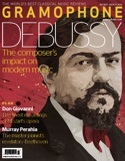Texte paru dans: / Appeared in: |
|
|
Outil de traduction (Très approximatif) |
|
|
Reviewer: David
Vickers The libretto of Lotario (1729) was adapted from Orlandini’s Adelaide, which Handel had probably heard recently in Venice while recruiting new singers. Having poisoned the king of Italy, usurpers Berengario and Matilde scheme to force the widowed queen Adelaide to marry their son Idelberto (a decent fellow who is nothing like his evil parents); Lotario (the king of Germany) defeats and captures Berengario and rescues his beloved Adelaide – aided by the intervention of the honourable Idelberto. Alan Curtis’s version was hampered by regrettable abridgements, and at around the same time a concert performance conducted by Paul Goodwin was whittled down to a single disc of arbitrary highlights (Oehms, 12/04). NDR’s live broadcast from last year’s Göttingen Handel Festival is not complete either – there are numerous cuts, mostly (but not only) to recitatives, and several essential developments in the plot are obscured. Nevertheless, this warts-andall performance has a persuasive dramatic heart – due in large part to Laurence Cummings’s expert direction of the excellent orchestra, which uses a satisfying variety of expressive rhetorical tools and aptly shaded textures. The beleaguered Adelaide is sung by Marie Lys with disciplined agility and élan; her resolute defiance of her captors in ‘Scherza in mar la navicella’ starts from a position of regal dignity and grows to angry vehemence in its final flourishes, whereas her private admission of hopelessness and desperation (‘Menti eterne’) drips with poignancy and pathos. Sophie Rennert’s firmly focused legato singing is well suited to Lotario’s elegant description of an optimistic pilgrim unconcerned by nightfall (the intricately contrapuntal ‘Non disperi peregrino’). Jorge Navarro Colorado gets around rapid triplet fioriture superbly in Berengario’s bitter reaction to his defeat (‘Regno e grandezza’), and his awakening penitence is admirably euphonious (‘Vi sento, si’). Ursula Hesse von den Steinen’s Matilde is a cruel harridan; her vengeful retort to her son in the stinging ‘Arma lo sguardo’ was later Handel’s model for Jephtha’s ‘Open thy marble jaws’ (another complicated parent-child situation). Jud Perry overcomplicates the simplicity of Idelberto’s lovely ‘Bella, non mi negar’ but acts assertively as the drama’s selfless moral hero. Todd Boyce’s blustering Clodomiro is more one-dimensional than Handel’s music suggests, but the strings’ juxtaposition of storms and calm is realised perfectly in ‘Se il promette calma’.
Notwithstanding a few
imperfections, this is a convincing argument that Lotario is not merely packed
with excellent music but can be gripping theatre. |
|




